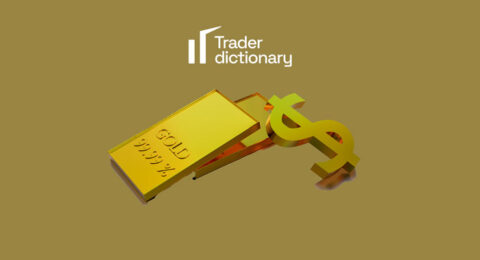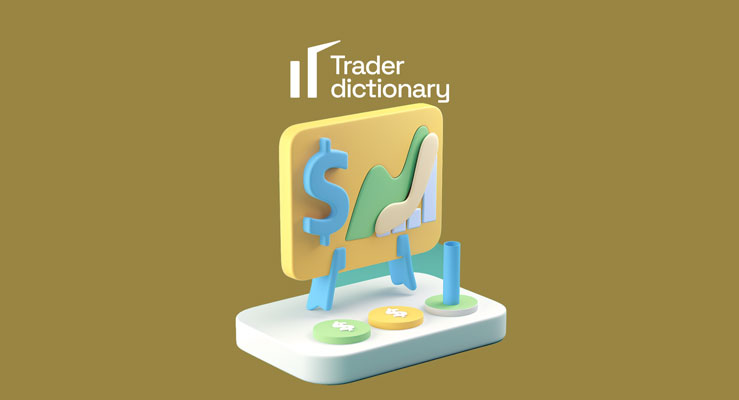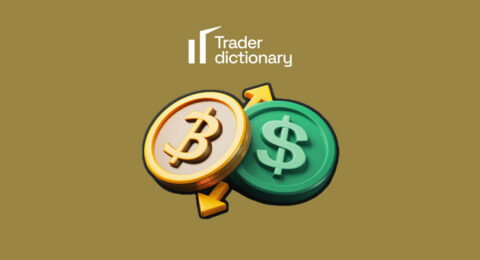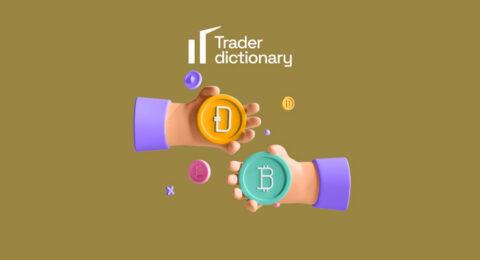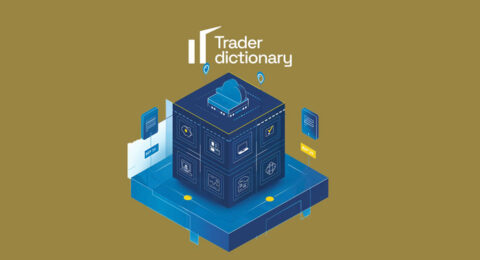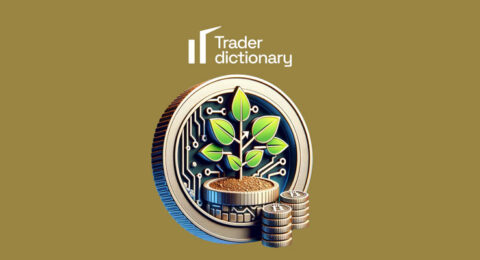The foreign exchange market, also known as Forex, is one of the largest and most vibrant financial markets in the world. With its enormous daily trading volume, it offers unlimited opportunities for those who want to learn and invest. In this article, we will introduce and analyze the basic aspects of the foreign exchange market, from how it works to important trading strategies. Whether you’re a beginner or experienced, this information will be a solid foundation for your journey in the world of Forex. Join us in exploring and laying the groundwork for your success in the forex market!
What is the Forex Market?
The Forex market allows participants, such as banks and individuals, to buy, sell, or exchange currencies for both hedging and speculative purposes. The Forex market is the largest financial market in the world, comprising banks, commercial companies, central banks, investment management firms, hedge funds, retail forex brokers, and investors.
MAIN POINTS
- The Forex market allows participants, including banks, funds, and individuals, to buy, sell, or exchange currencies for both hedging and speculative purposes.
- The Forex market operates 24 hours, 5.5 days a week, with trillions of dollars in daily trading activity.
- Forex trading can offer high profits but also comes with high risks.
- The Forex market includes two levels: the interbank market and the over-the-counter (OTC) forex trading market.
- Many Forex accounts can be opened with as little as $100.
How Does the Forex Market Work?
The FX foreign exchange market is a continuously and non-stop operating global market. Previously, the forex market was mainly dominated by institutional companies and large banks acting on behalf of their clients. However, in recent years, it has become more retail-oriented – traders and investors of all sizes are participating in it.
History of the Forex Market
Looking back, the Forex market has undergone significant changes.
- Origins in the 20th Century: The Forex market, as we know it today, began to take shape in the early 20th century. Initially, it was mainly regulated by large international banks.
- Bretton Woods Event: In 1944, the Bretton Woods Conference marked a turning point. Here, countries agreed to fix their currencies’ exchange rates against the US dollar, which was then linked to gold. This laid the foundation for the modern Forex market.
- Collapse of the Bretton Woods System: In the 1970s, the Bretton Woods system collapsed, leading to exchange rate volatility. This paved the way for the modern foreign exchange market, where exchange rates are determined by market forces.
- Technology and Globalization: With the explosion of technology and globalization, the Forex market has grown immensely. The development of the internet has made Forex trading more accessible to many people.
- Modern Market: Today, the Forex market is a large and complex financial market, with the participation of banks, financial institutions, companies, and individual investors from around the world. It is not only a currency trading place but also a reflection of global economic fluctuations.
Types of Forex Markets
There are three main types of Forex markets: the spot market, the forward market, and the futures market.
Spot Forex Market:
The spot forex market involves the immediate exchange of currencies between the buyer and seller at the current exchange rate. The spot market accounts for a large portion of currency trading.
The main participants in the spot market include commercial, investment, and central banks, as well as traders, brokers, and speculators. Large commercial and investment banks play a significant part in spot transactions, trading not only for themselves but also for their clients.
Forward Forex Market
In the forward market, two parties agree to trade a certain currency at a fixed price and quantity on a future date. No currency is exchanged when the deal is initiated. The parties can be companies, individuals, governments, or similar. The forward market is useful for hedging risk.
However, the forward market lacks centralized trading and is relatively less liquid (as only two parties are involved). Additionally, there is counterparty risk, the risk that the other side will not fulfill its obligations.
Futures Forex Market
The futures market is similar to the forward market in basic function. However, a major difference is that the futures market uses centralized exchanges. Thanks to the centralization of exchanges, there is no counterparty risk for either side. This ensures that the futures market is very liquid, especially compared to the forward market.
Pros and Cons of Forex Trading
Pros
- High Liquidity: The high liquidity of Forex is my favorite aspect. You can easily buy or sell a large amount of currency without significantly affecting the price. This creates great opportunities for flexible trading.
- 24/5 Market Operation: Another big plus is that Forex operates continuously from Monday to Friday. This allows you to trade at any time of the day, fitting your schedule.
- Financial Leverage: Forex allows the use of leverage, meaning you can trade with a larger amount than your initial capital. This expands the potential for profit but also simultaneously increases risk.
- Wide Range of Currency Pairs: In Forex, you have the option to trade with a wide variety of currency pairs, from major pairs to more exotic currencies. This allows you to take advantage of opportunities worldwide.
- Quick Response to News and Global Events: The Forex market responds quickly to global economic news and events. This creates opportunities for agile and knowledgeable investors.
- Customizable Leverage and Risk: You can adjust the level of leverage and the degree of risk you are willing to accept. This helps each trader find a strategy that suits them.
- Learning and Development Opportunities: The Forex market provides a continuous learning environment with diverse and varied trading situations. For me, this is a real educational experience.
Cons
- High Risk Due to Leverage: While leverage can increase profit opportunities, it also increases the risk of loss. I always emphasize that the use of leverage must be extremely careful and smart.
- Strong Influence from News and Global Events: Forex is very sensitive to economic and political news and events. This can cause unexpected price fluctuations. I always remember to keep up to date with the news.
- Lack of Uniform Regulation: Each country has its own regulations for Forex, which can create complexity for international investors. I find this sometimes difficult in devising global investment strategies.
- Risk of Fraud and Non-transparent Trading: Due to its online and global nature, Forex also opens up opportunities for fraudulent activities and non-transparent trading.
- Requires Knowledge and Experience: To succeed in Forex, you need knowledge, experience, and good analytical skills. This requires time and continuous commitment.
- Challenges in Emotion Management: Forex trading requires strong emotional control. I find this one of the biggest challenges that traders face.
Is the Forex Market Volatile?
The Forex market is one of the most liquid markets in the world. Therefore, it can be less volatile than other markets, like real estate. The volatility of a particular currency depends on many factors, such as the political and economic situation of that country. Therefore, events like economic instability in the form of debt default or trade imbalance with another currency can cause significant volatility.
Is the Forex Market Regulated?
Forex trade regulation depends on the regulations of each country. Countries like the USA have a developed infrastructure and market for Forex trading. Forex trading in the US is tightly regulated by the National Futures Association (NFA) and the Commodity Futures Trading Commission (CFTC). However, due to the high use of leverage in Forex trading, developing countries like India and China have restrictions on the companies and capital used in Forex trading. Europe is the largest market for Forex trading. The Financial Conduct Authority (FCA) oversees and regulates Forex trading in the UK.
What Currencies Can You Trade?
Highly liquid currencies have a ready market and exhibit smooth price action and predictable responses to external events. The US dollar is the most traded currency in the world. It is paired in six out of the seven most liquid currency pairs of the market. However, less liquid currencies cannot be traded in large sizes without being tied to significant market movements related to the price.
Conclusion
Concluding the article, I hope you have equipped yourself with basic and important knowledge about the forex market. This is the first important step on your journey to understanding and participating in one of the world’s most dynamic financial markets. Remember, knowledge is the key to success in any field, and the forex market is no exception. Continue to learn, research, and apply what you have learned in practice. We believe that with patience and determination, you will achieve certain successes in this market. Good luck, and don’t forget to follow our blog for more useful articles on cryptocurrency and blockchain technology!


